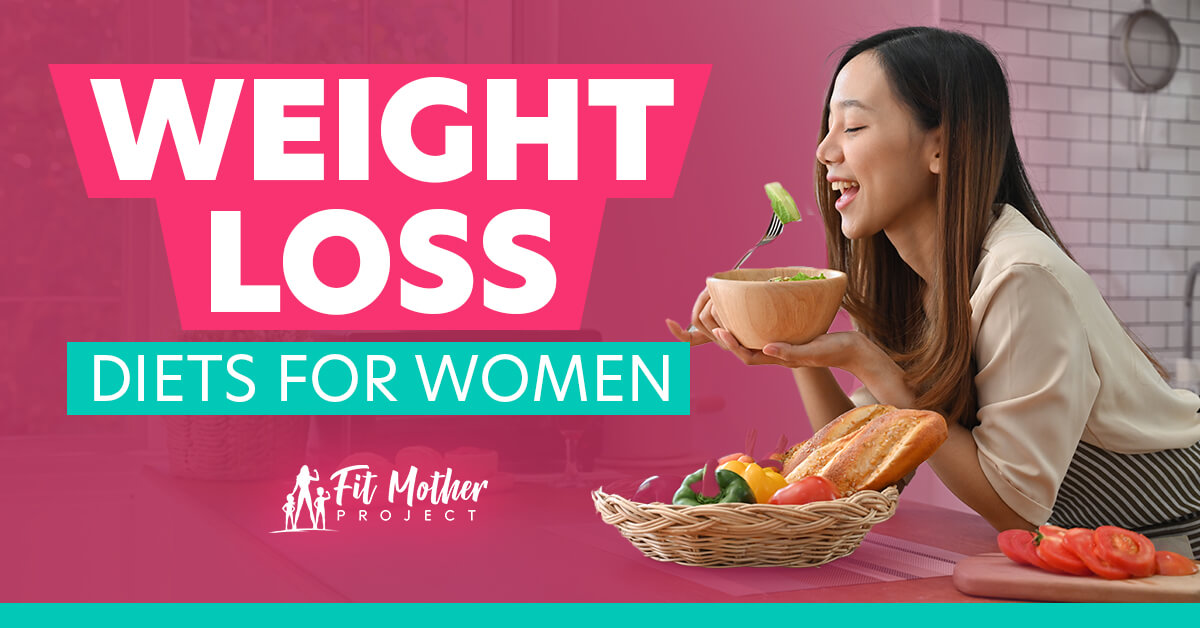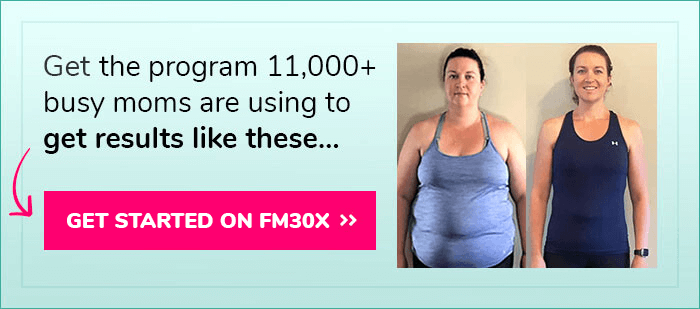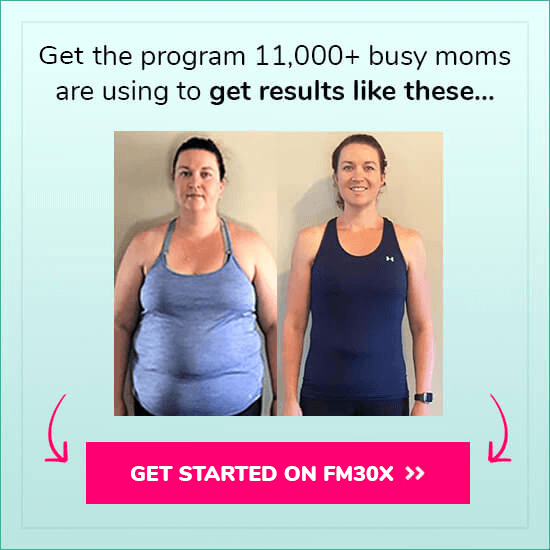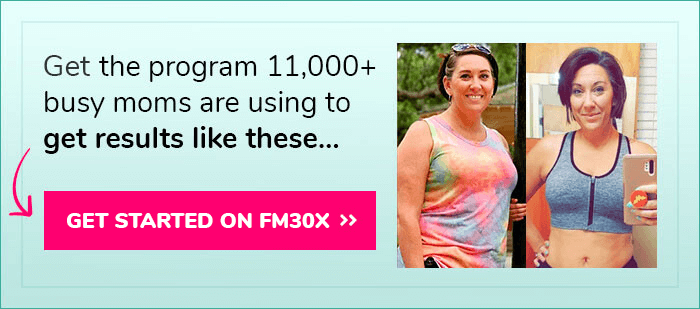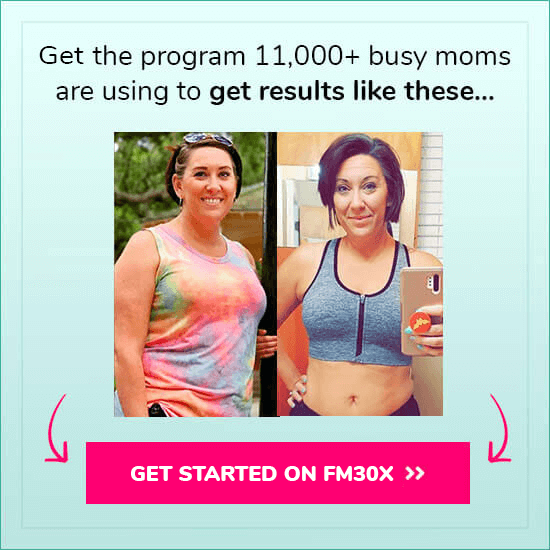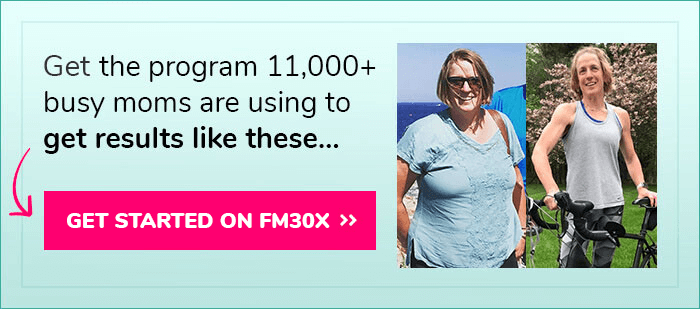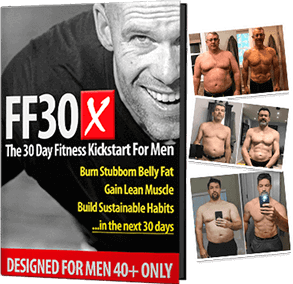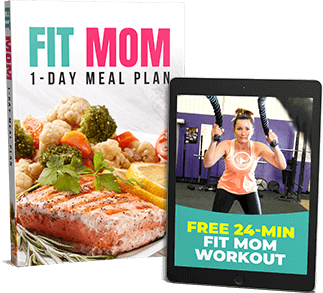Women have a unique set of nutritional needs, and there are many different diets for women out there.
Knowing your specific dietary needs can enhance your overall health, prevent nutritional deficiencies, and help you maintain a desirable weight.
Some of the best diets for women are simple, whole-food meal plans that taste delicious and don’t leave you feeling deprived.
Does an easy, yummy, and fulfilling weight loss plan sound good to you?
Whether you’re seeking weight loss or healthy eating plans in your 20s, 30s, 40s, 50s, or beyond to look and feel amazing, here are 7 tips to get you started!
It is important to have an effective fitness and weight loss approach, but which is the best?
Weight Loss Diets For Women: 7 Ways To Make Weight Loss Work
1. Control Your Calories
Control your overall calories to avoid the unwanted weight gain that can occur with aging. USDA calorie guidelines for weight maintenance in women of various age ranges are:
Women in Their 20s
- Sedentary: 1,800-2,000 calories
- Moderately active: 2,000-2,200 calories
- Active: 2,400 calories
Women in Their 30s
- Sedentary: 1,800 calories
- Moderately active: 2,000 calories
- Active: 2,200-2,400 calories
Women in Their 40s
- Sedentary: 1,800 calories
- Moderately active: 2,000 calories
- Active: 2,200 calories
Women in Their 50s
- Sedentary: 1,600-1,800 calories
- Moderately active: 1,800-2,000 calories
- Active: 2,200 calories
Women in Their 60s, 70s, and beyond
- Sedentary: 1,600 calories
- Moderately active: 1,800 calories
- Active: 2,000 calories
Your personalized daily calorie needs are based on your size, metabolism, and activity level. Use USDA guidelines as a place to start and adjust your intake as needed to meet weight management goals.
To LOSE WEIGHT, simply subtract 500-1,000 calories from your weight maintenance calorie requirement, but don’t drop lower than 1,000 calories per day unless a doctor supervises you.
Most women benefit from eating about 1,200-1,500 calories per day to drop excess weight at a safe rate.
2. Use the Perfect Plate Method
The Perfect Plate method is a good way to estimate portion sizes without tedious calorie counting when you're tight on time.
The best diets for women often include meals on plates that:
- Are half full of non-starchy vegetables
- Are one-fourth full of whole grains, legumes, or other starchy vegetables
- Are one-fourth full of protein-rich foods
- Contain some healthy fats
- Offer 1-2 servings of fruit each day
- Contain 3 daily servings of dairy foods or calcium-rich dairy alternatives
By filling your plate and planning meals in this fashion, you can get the nutrients your body needs to stay healthy without feeling deprived.
3. Calculate Macros
Knowing how many grams of carbohydrates, protein, and fat you should eat based on your calorie requirements is helpful for many women.
Balanced diets for women often include:
- 45-50% of your calories from carbohydrates = 180-200 grams per day for a 1,600-calorie diet
- 20-25% of your calories from protein = 80-100 grams per day for 1,600-calorie meal plans
- 25%-30% of your calories from fat = 44-53 grams per day for 1,600-calorie diets
Carbohydrates
Healthy foods rich in carbohydrates, containing about 15-20 grams of carbs per serving, include:
- 1/2 cup of cooked whole grains like quinoa, oatmeal, brown rice, wild rice, whole-grain pasta, whole-grain cereals, and whole-grain bread
- 1/2 cup of cooked starchy vegetables like sweet potatoes, squash, corn, green peas, chickpeas, black beans, pinto beans, lentils, and other legumes
- 1/2 cup of fresh fruits
- 1 cup of milk
Protein
Sources of nutritious protein foods include:
- 3 ounces of chicken, turkey, duck, bison, venison, lean organic beef, fish, shrimp, or other seafood: 20-26 grams
- 1 cup of low-fat cottage cheese: 28 grams
- 1 container of plain low-fat Greek yogurt: 20 grams
- 1 cup of cooked lentils: 18 grams
- 1 cup of cooked black beans: 14 grams
- 3 ounces of firm tofu: 9 grams
- 2 large eggs: 12 grams
- 1 cup of cooked quinoa: 8 grams
- 1 cup of low-fat milk: 8 grams
- 2 tablespoons of nut butter: 8 grams
Fats
Foods rich in healthy fats, about 5 grams of fat per serving, include:
- 1 teaspoon of olive oil, canola oil, pumpkin seed oil, walnut oil, flaxseed oil, coconut oil, or other plant-based oils
- 3 slices of avocados
- 1/3 ounces of nuts or seeds
- 1/2 tablespoon of nut butter
- 10 olives
- 2 tablespoons of hummus
- 1-2 ounces of fatty fish like salmon
Burn RX is for women who are working on losing weight and want to see faster and easier results from their eating & exercise efforts. It helps your body burn more fat before, during, and after your workouts, which will improve your body composition while boosting your energy + metabolism.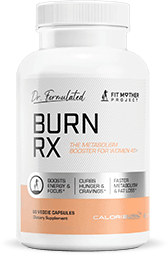
![]()
Meet Burn RX. The Safe & Effective Metabolism Booster To Help You See Faster Results

4. Consume Key Micronutrients
The best diets for women contain key vitamins and minerals.
Essential micronutrients important for women include iron, calcium, vitamin D, folate, iodine, vitamin B12, and choline.
Consider adding the following nutrient-dense foods to your diet plan:
Calcium
Calcium supports strong bones. Good sources of calcium include milk, plant-based milk, yogurt or plant-based vegan yogurt, reduced-fat cheese, sardines, cottage cheese, calcium-fortified orange juice, calcium-fortified breakfast cereals, and leafy greens.
Women under age 50 require 1,000 milligrams of calcium daily, while women over 50 should get at least 1,200 milligrams of calcium each day.
Vitamin D
Vitamin D also supports bone health. Foods rich in vitamin D include fish, milk, yogurt, egg yolks, calcium-fortified orange juice, and calcium-fortified breakfast cereals.
Aim for 15 micrograms of vitamin D daily and 20 micrograms per day if you’re over age 70.
Iron
Women younger than age 51 require 18 milligrams of iron daily versus the 8-milligram requirement of men and older women.
Pregnant women need 27 milligrams, and nursing women require at least 9 milligrams of iron each day.
Iron-rich foods include red meat, chicken, turkey, lentils, other legumes, spinach, tofu, sardines, and iron-fortified breakfast cereals.
Folate
Folate is a key nutrient necessary to maintain a healthy pregnancy and prevent brain and spinal cord defects.
Women need at least 400 micrograms of folate, or folic acid, daily.
During pregnancy, this number jumps to 600 micrograms, and breastfeeding women should have 500 micrograms.
Food sources of folic acid include spinach, other green veggies, avocados, legumes, and fortified grains.
Iodine
Iodine deficiency can affect your body’s thyroid production and metabolism.
Make sure to eat foods rich in iodine or take a multivitamin supplement containing iodine.
Women need at least 150 micrograms of iodine daily, 220 micrograms per day during pregnancy, and 290 micrograms while breastfeeding.
Iodine-rich foods include fish, seafood, eggs, milk, yogurt, iodized salt, enriched bread, and enriched grains.
Vitamin B12
If you follow a vegetarian or vegan diet, vitamin B12 is important as this nutrient is abundant in meat, fish, and poultry.
Other dietary sources of vitamin B12 include milk, yogurt, cheese, nutritional yeast, and B12-fortified breakfast cereals.
Women need 2.4 micrograms daily, while pregnant women should aim for 2.6 micrograms. Breastfeeding women need 2.8 micrograms of B12 daily.
Choline
Choline is nutrient-abundant in eggs, red meat, soybeans, chicken, fish, mushrooms, potatoes, beans, quinoa, milk, and green vegetables.
It's crucial for women of childbearing age to reduce the risk of neural tube defects in developing babies.
Choline requirements for women are 425 milligrams, 450 milligrams during pregnancy, and 550 milligrams while breastfeeding.
5. Take Dietary Supplements
Despite eating a well-balanced diet for women, it’s often difficult to get all the essential nutrients needed to optimize health and prevent nutritional deficiencies, especially if you reduce calories during weight loss.
Consider the following dietary supplements for women:
Multivitamin Supplements
Take a multivitamin supplement containing all or most essential vitamins and minerals to prevent nutrient deficiency.
Choose multivitamins customized for your age, gender, and life stage.
For example, take a prenatal vitamin supplement if you may become pregnant, are pregnant, or are nursing.
Other multivitamin supplements are designed for post-menopausal women.
Protein Supplements
Protein supplements aren't mandatory but are useful after workouts to rebuild or repair muscles.
Because protein increases satiety, protein meal replacement shakes or bars work well when trying to drop excess weight.
Consider making your own protein shakes at home by mixing protein powder with water or milk, plus fruit or nut butter if you’d like.
Or try these great protein shake recipes!
Omega-3 Supplements
Omega-3 supplements help you meet daily eicosapentaenoic acid (EPA) and docosahexaenoic acid (DHA) requirements, as studies show women consume fewer omega-3s than men and may be at risk of inadequate intakes.
Omega-3s are helpful as they optimize cognitive development in unborn babies, enhance brain function in children and adults, and can improve heart health.
The International Society for the Study of Fatty Acids and Lipids (ISSFAL) recommends adults get at least 500 milligrams of EPA plus DHA daily, and pregnant women consume at least 200 milligrams of DHA each day.
Probiotic Supplements
Probiotics can improve your overall health, and you might not be getting enough of these helpful gut bacteria from foods alone.
Studies show that probiotics enhance digestive health and may improve blood cholesterol levels, oral health, skin issues, and anxiety or depression.
Probiotics are often present in yogurt, kefir, kimchi, and other fermented foods, but taking a daily probiotic supplement is beneficial.
Fiber Supplements
Fiber supplements aid in digestive health and keep you full, which is why studies show higher fiber intakes are associated with weight loss.
Women need at least 25 grams of fiber each day to achieve optimal health.
While you can meet this requirement from fiber-rich foods, fiber supplementation can enhance weight loss or prevent unwanted weight gain over time.
As a busy women, it’s challenging to stay consistent with healthy eating. That’s why we created SuperFuel… the delicious “all-in-one” nutrition shake for busy women 40+ to give your body the protein + key nutrients you need for more energy, fat burning, and muscle building.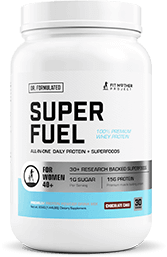
![]()
Meet SuperFuel. The Delicious Protein Shake Packed With 40+ Energy-Boosting Vitamins & Superfoods (Designed For Busy Women)

6. Avoid Buying Certain Foods
Not keeping certain foods in your house is the best way to avoid junk food, stay healthy, and steer clear of unwanted weight gain.
Examples of foods NOT to add to your grocery list include:
- Fried meats, French fries, onion rings, mozzarella sticks, and other fried foods
- Processed meats like ham, hot dogs, cold-cut meats, hamburgers, and regular bacon
- Potato chips
- Sweets, sugary cereals, baked goods, sodas, and other sugary drinks
- White bread, white rice, regular pasta, and other refined grains
- Pizza, macaroni and cheese, microwavable dinners, and other highly processed foods
- Alcoholic drinks
While a cheat day every now and then is OK, shy away from junk foods whenever possible.
7. Make Sure You're on the Right Meal Plan for You
If you’re thinking about trying popular diets for women, it’s helpful to learn the facts and determine which one, if any, is right for you.
Medical Weight-Loss Diets
Medical weight-loss diets may contain just 500-800 calories daily, which is why supervision from a doctor is important.
Very low-calorie diets often include protein shakes or bars as meal replacements or taking medications that affect your appetite and metabolism.
Medical weight-loss diets may be indicated as a short-term weight-loss strategy for people struggling with obesity, to get excess weight off quickly and reduce the risk of serious health problems.
Low-Carb Diets
Studies show that restricting carbohydrates, especially carbs in sweets, sugary drinks, and refined grains, is associated with weight loss and improved health parameters like lower cholesterol and triglycerides.
Restricting carbohydrates to just 20 grams daily is OK in the short term but can lead to nutrient deficiencies and fatigue over time.
Try cutting back on unhealthy carbs but not severely restricting them.
The National Institute of Health recommends getting at least 130 grams of carbs daily.
Mediterranean Diets
Mediterranean diets are heart-healthy, well-balanced diets for women and men rich in fruits, vegetables, fish, nuts, seeds, legumes, whole grains, and olive oil.
Studies show this type of eating plan can reduce obesity, waist circumference, and the risk of diabetes and heart disease.
Plant-Based Diets
Studies have found that vegetarian diets, especially entirely plant-based or vegan diets, are associated with significant weight reduction as nixing meat and other animal-based foods helps reduce your overall calorie intake.
Paleo Diets
The Paleo diet, or Paleolithic diet, is a meal plan containing foods the cavemen probably ate.
It consists of fruits, vegetables, nuts, seeds, fish, lean meats, and oils.
Grains, legumes, dairy foods, potatoes, added sugar, and highly processed foods are not part of the diet.
Studies show Paleo dieting helps reduce waist circumference, body weight, and chronic disease risk factors.
However, nutrient deficiencies are a concern if you eliminate all whole grains, legumes, and dairy foods long-term, so supplementation might be necessary.
Ketogenic Diets
Ketogenic diets are very low-carb diets rich in dietary fat. They put your body into a state of ketosis, burning primarily fat as fuel rather than carbohydrates.
Strict keto diets contain just 4-5% of your total calories from carbohydrates, some protein, and up to 90% of the calories from fat.
While severely restrictive keto diets often lead to weight loss, they are difficult to follow long-term, and nutrient deficiencies are a concern.
If you opt for keto dieting for weight loss, try more liberal versions of the diet.
16:8 Intermittent Fasting
Intermittent fasting can help you eat fewer calories throughout the day, which leads to effective weight loss.
However, fasting for long time periods can cause fatigue, headaches, and difficulty concentrating.
Try 16:8 intermittent fasting to drop weight without the side effects.
Fast for 16 hours each day, including the time you’re asleep, and eat during an 8-hour window.
For example, you might eat only between the hours of 10 am and 6 pm.
Well-Balanced, Reduced-Calorie Diets
You don’t have to drastically alter the macronutrient content of balanced diets for women to lose weight and keep it off.
Simply exercise regularly, get at least 7 hours of sleep each night, eat nutritious foods, and reduce your current caloric intake by 500 calories daily to drop about 1 pound weekly without feeling hungry.
To get started with a plan that will work for YOU, try the free Fit Mom 3-Day Weight Loss Jumpstart today!
Erin Coleman is a registered and licensed dietitian with over 15 years of freelance writing experience. She graduated with her Bachelor of Science degree in nutritional science from the University of Wisconsin-Madison, and completed her dietetic internship at Viterbo University in La Crosse, Wisconsin. Prior to beginning her career in medical content writing, Erin worked as Health Educator for the University of Wisconsin-Madison Department of Internal Medicine. Her published work appears on hundreds of health and fitness websites, and she’s currently working on publishing her first book! Erin is a wife, and a Mom to two beautiful children.
Fit Mother Project is the answer you’ve been looking for. Inside the program, you’ll receive: Our Fit Mother 30X Program (FM30X) is the answer you’ve been looking for. Inside FM30X, you’ll receive:If you’re a busy mom who wants to finally lose weight,
get healthy, and actually keep the pounds off for good,
this is the simple program you’ll love sticking to…
GET STARTED ON FM30X TODAY
If you’re a busy mom who wants to finally lose weight,
get healthy, and actually keep the pounds off for good,
this is the simple program you’ll love sticking to…
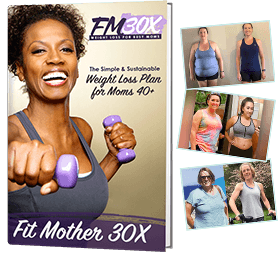
Learn More About FM30X

*Please know that weight loss results & health changes/improvements vary from individual to individual; you may not achieve similar results. Always consult with your doctor before making health decisions. This is not medical advice – simply very well-researched info on diets for women.

